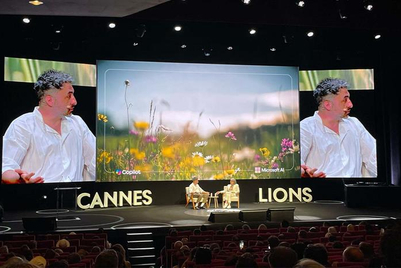
The writing is on the wall: cookies and advertising IDs are coming out. Marketers have been using them for over a decade to tailor specific ads for consumers, but their widespread use in apps and websites will soon be prohibited. And while some players will undoubtedly push back, claiming Google has again delayed the deprecation of third-party cookies, the message is clear, and the race to find alternative solutions for online advertising is definitely on.
Add to this the current macroeconomic and geopolitical storm, and marketers would be better served by allocating more bandwidth to finding a viable digital advertising strategy for 2023 and beyond. And shifting from personalised to personified advertising is the best way to go.
Get a head start on the disappearance of cookies and advertising IDs
Adtech players are facing unprecedented challenges. Regulations have tightened with the advent of GDPR and its equivalents worldwide, the technological landscape is evolving with the end of third-party cookies and IDs, and ethics have also come into play, with users massively rejecting online tracking. In this environment, players can be divided into three main groups, reflecting their acceptance or denial of the industry's evolution towards a cookieless and IDless model.
Without surprise, the first group includes walled gardens like Amazon, Facebook or Google and scaled retailers like Lazada, Shopee and Zalora. Thanks to their access to treasure troves of first-party, consented consumer data, they will continue to grow and remain significant players in the sector - especially with the rise of retail media.
The second category brings together more traditional players, who continue to deliver campaigns based on cookies and advertising IDs. They still represent a sizable market share but must adapt to the upcoming changes or risk becoming obsolete. Advertising IDs are going away; it is a matter of "when," not "if." Although some brands still agree to run these campaigns, the pressure regarding the use of personal data is such that we can well imagine a brand's top decision-maker demanding that their media agencies pull the plug on all campaigns that rely on cookies and IDs.
Unified ID players also fall into this category as they replicate ID-based technologies within non-scalable ecosystems that are siloed and can't be interoperable. And suppose alternatives such as contextual and semantic targeting may seem like an easy substitute. But, in that case, they don't go far enough in understanding users' interests and do not provide the nuanced differentiation advertisers need.
There is, however, a third category of players developing future-proof solutions that align with the industry's evolution. It comprises many open Internet players who have embraced a new generation of technologies, respecting users' privacy and independent of cookies and IDs.
Personified advertising is the new path to growth
If you think about it, isn't hyper-personalisation a perversion of the true purpose of online advertising? Advertisers shouldn't limit themselves to only targeting a select few individuals each time they want to raise awareness about a product offering - say, an automotive brand only reaching out to people committed to eco-friendly consumption to promote its latest electric vehicle range.
It would benefit much more from targeting 100,000 or 200,000 consumers likely to buy an electric vehicle, engaging them on the assets they consume the most. This means going beyond automotive and clean vehicle publications and blogs exclusively. A more future-proof alternative is vital and already exists in personified advertising.
This technology is based on personas rather than users' identities and the destinations where these same personas consume content instead of the individual users themselves. This model is built on foundational data that provides in-depth insights into consumers' digital behaviour, helping define millions of assets and personas. To guarantee their relevance, these personas are constantly refined and updated through surveys and questionnaires sent to large user panels. Moreover, having ongoing campaign delivery and performance data at hand creates a constant feedback loop that helps keep the targeting razor-sharp at all times. As a system, this means personification is the only accurate method guaranteed to qualify many consumers in an exact manner while respecting their privacy.
Betting on additional delays in the cookie and ID deprecation is risky behaviour. Instead, a more future-proof and consumer-friendly approach has emerged with personified advertising, and advertisers would do well by using this new cookieless and IDless technology. By ending ID-based advertising and prioritising customer privacy, the industry can create the dream scenario of a prosperous future and accrue benefits for all stakeholders, from brands to publishers and users.
Niall Hogan is the managing director for APAC at adtech firm Ogury



.jpg&h=334&w=500&q=100&v=20250320&c=1)



.png&h=334&w=500&q=100&v=20250320&c=1)



.png&h=334&w=500&q=100&v=20250320&c=1)

.png&h=268&w=401&q=100&v=20250320&c=1)
.jpg&h=268&w=401&q=100&v=20250320&c=1)

.jpg&h=268&w=401&q=100&v=20250320&c=1)
.png&h=268&w=401&q=100&v=20250320&c=1)
.png&h=268&w=401&q=100&v=20250320&c=1)

